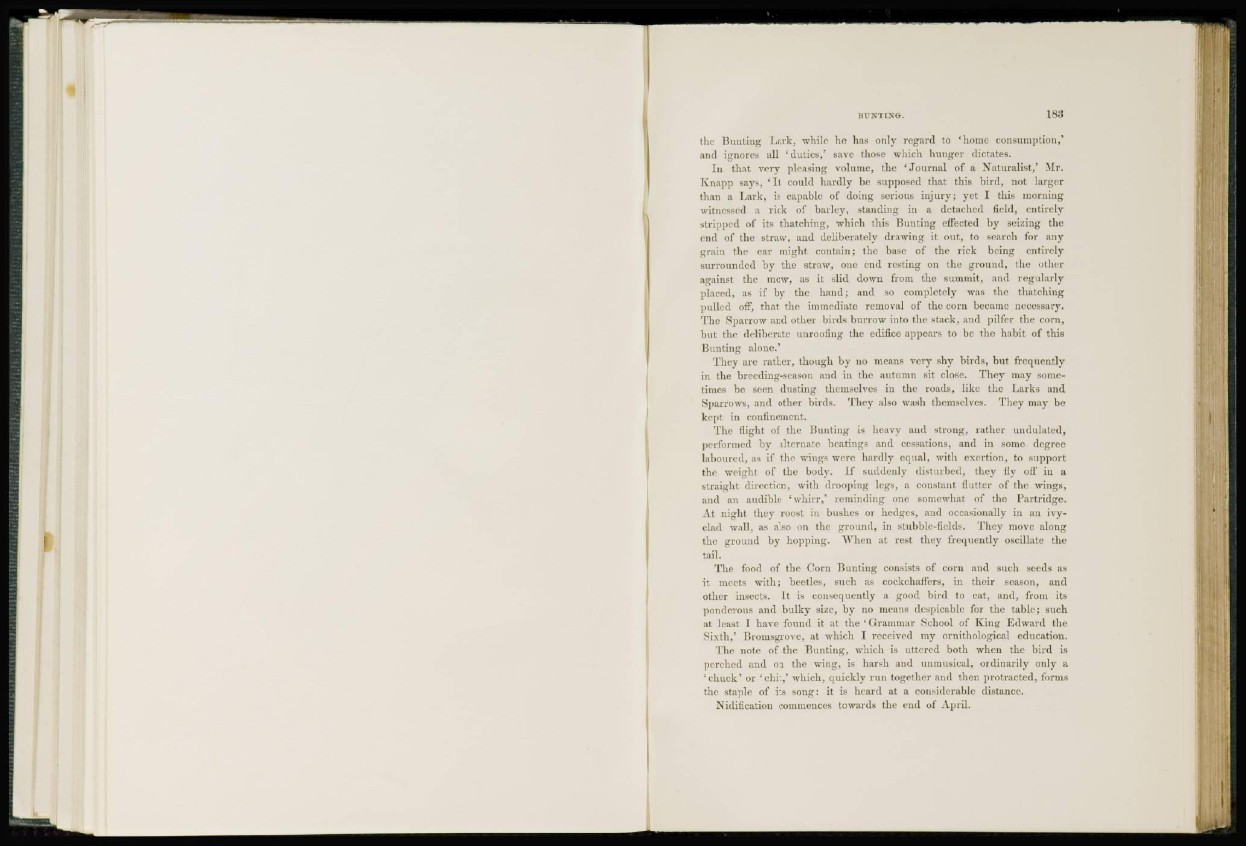
the Bunting Lark, while he has only regard to 'home consumption,'
and ignores all 'duties,' save those which hunger dictates.
In that very pleasing volume, the 'Journal of a Naturalist,' Mr.
Knapp says, ' It could hardly be supposed that this bird, not larger
than a Lark, is capable of doing serious injury; yet I this morning
witnessed a rick of barley, standing in a detached field, entirely
stripped of its thatching, which this Bunting effected by seizing the
end of the straw, and deliberately drawing it out, to search for any
grain the ear might contain; the base of the rick being entirely
surrounded by the straw, one end resting on the ground, the other
against the mow, as it slid down from the summit, and regularly
placed, as if by the hand; and so completely was the thatching
pulled off, that the immediate removal of the corn became necessary.
The Sparrow and other birds burrow into the stack, and pilfer the corn,
but the deliberate unroofing the edifice appears to be the habit of this
Bunting alone.'
They are rather, though by no means very shy birds, but frequently
in the breeding-season and in the autumn sit close. They may sometimes
be seen dusting themselves in the roads, like the Larks and
Sparrows, and other birds. They also wash themselves. They may be
kept in confinement.
The flight of the Bunting is heavy and strong, rather undulated,
performed by alternate beatings and cessations, and in some degree
laboured, as if the wings were hardly equal, with exertion, to support
the weight of the body. If suddenly disturbed, they fly off in a
straight direction, with drooping legs, a constant flutter of the wings,
and an audible ' whirr,1 reminding one somewhat of the Partridge.
At night, they roost in bushes or hedges, and occasionally in an ivyclad
wall, as also on the ground, in stubble-fields. They move along
the ground by hopping. When at rest they frequently oscillate the
tail.
The food of the Corn Bunting consists of corn and such seeds as
it meets with; beetles, such as cockchaffers, in their season, and
other insects. It is consequently a good bird to eat, and, from its
ponderous and bulky size, by no means despicable for the table; such
at least I have found it at the'Grammar School of King Edward the
Sixth,' Bromsgrove, at which I received my ornithological education.
The note of the Bunting, which is uttered both when the bird is
perched and on the wing, is harsh and unmusical, ordinarily only a
'chuck' or 'chit,' which, quickly run together and then protracted, forms
the staple of its song: it is heard at a considerable distance.
Nidification commences towards the end of April.